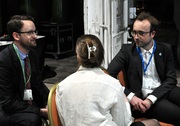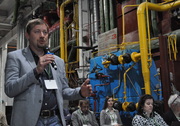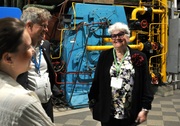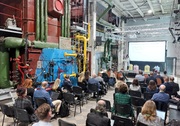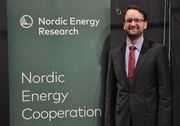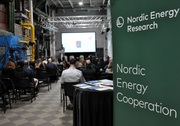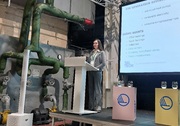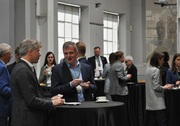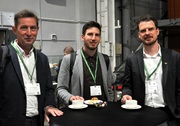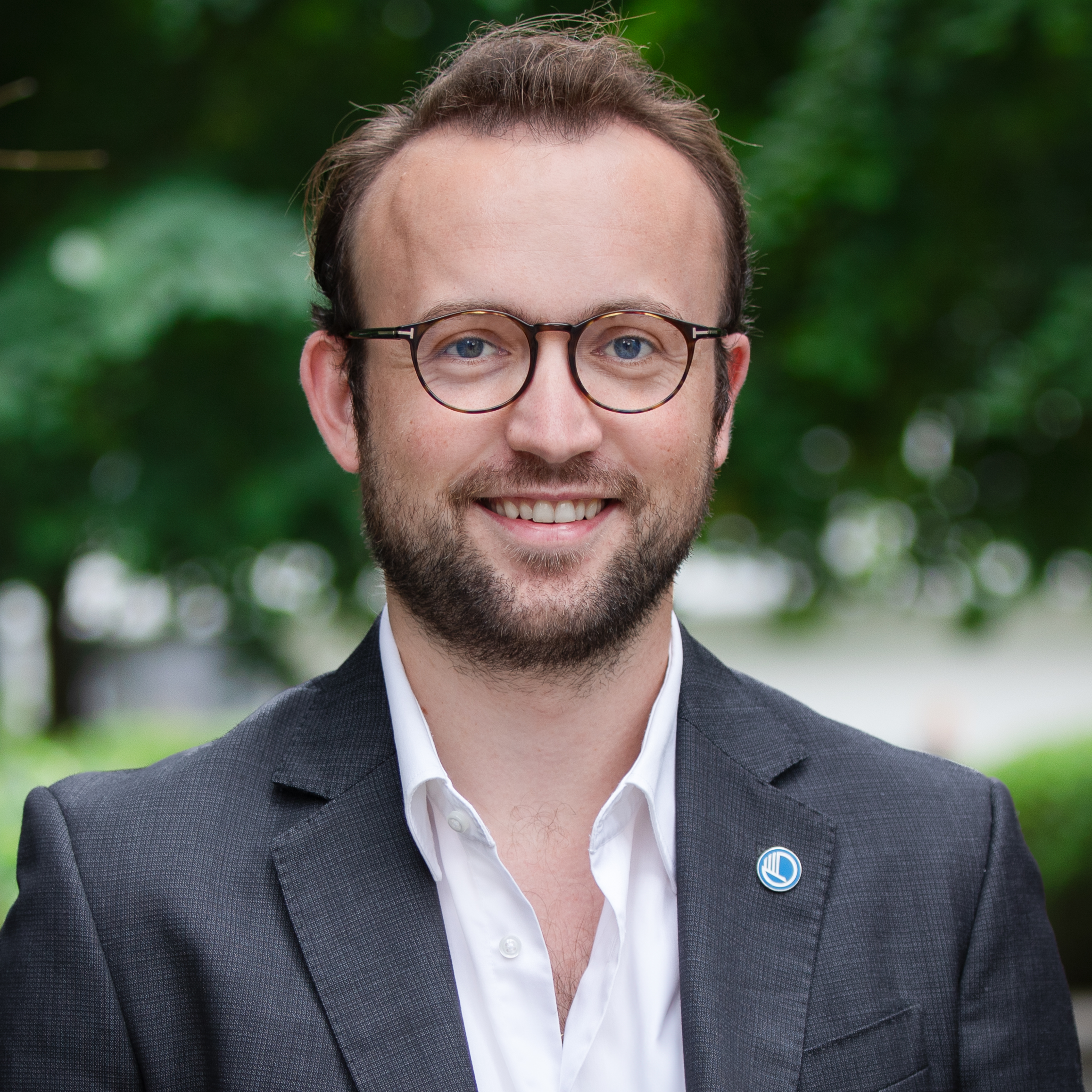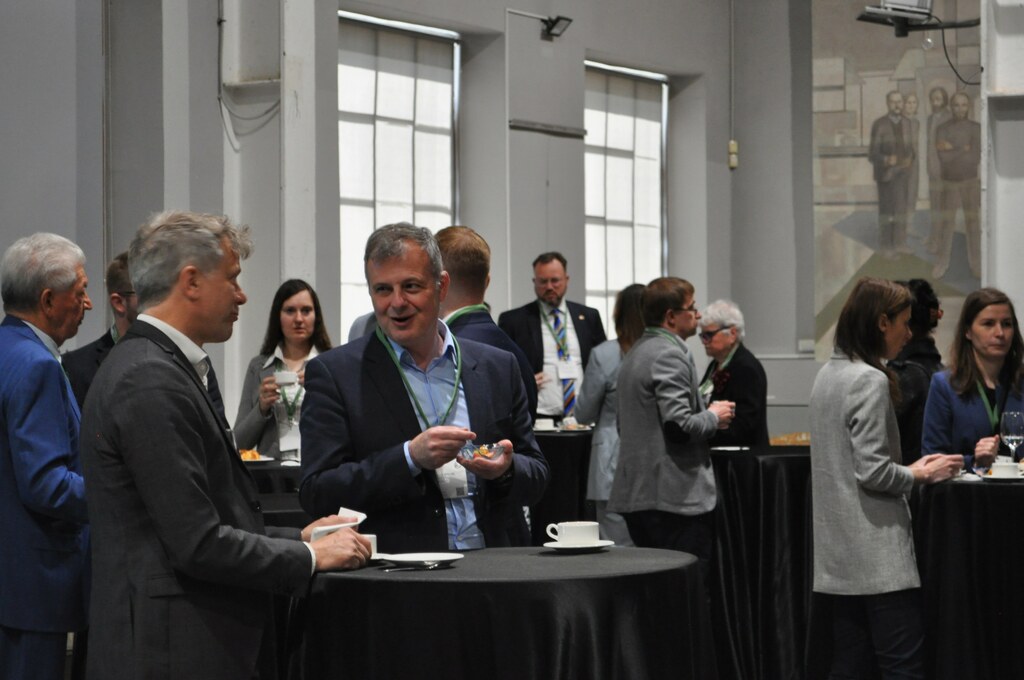
The Baltic-Nordic Energy Research Conference 2024
Marking the longevity of the Baltic-Nordic cooperation, energy stakeholders from the Baltic-Nordic region gathered in Vilnius on 14 May for the Baltic-Nordic Energy Research Conference. The conference was held in…
Marking the longevity of the Baltic-Nordic cooperation, energy stakeholders from the Baltic-Nordic region gathered in Vilnius on 14 May for the Baltic-Nordic Energy Research Conference. The conference was held in historical surroundings at Vilnius’ first power plant, which today is the Energy and Technology Museum. Results and achievements in the Joint Baltic-Nordic Energy Research Programme were presented and discussed, as well as the future of Baltic-Nordic collaboration in the research programme.
The conference was opened with a keynote speech from Albinas Zananavičius, Vice Minister for Energy of the Republic of Lithuania, issuing the necessity of energy cooperation between the Baltic-Nordic countries in today’s geopolitical climate: ”We are living in volatile worlds, and energy becomes one of the central topics where collaboration is needed. Especially after the full-scale invasion of the Russian Federation to Ukraine, when Lithuania became the first country to get rid of Russian energy in the beginning of April 2022. As the task of decarbonisation in the science community increases, our regional cooperation has to be strengthened to provide solutions on issues like offshore energy in the Baltic Sea.”
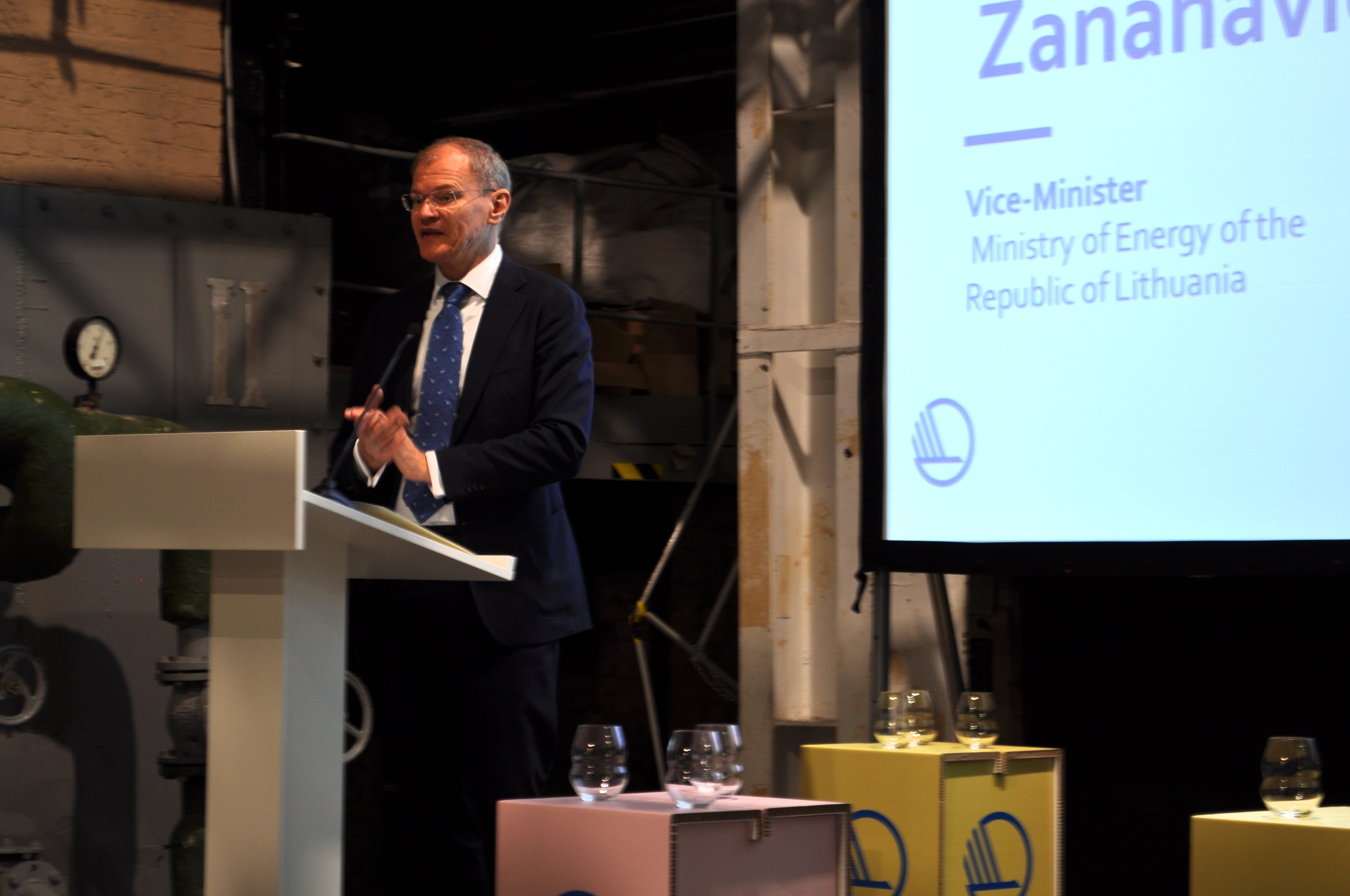
Albinas Zananavičius, Vice Minister of Energy, The Republic of Lithuania.
“The power of unity in diversity”
Among the keynote speakers opening the conference was also Helén Nilsson, Director of the Nordic Council of Ministers Office in Lithuania. The office in Vilnius has worked to enhance Nordic-Lithuanian cooperation since its establishment in 1991, and energy research initiatives like the Joint Baltic-Nordic Energy Research Programme continues to play a vital role in Nilsson’s view. She believes the programme is proof of “the power of unity in diversity”, where researchers from across borders and disciplines tackle common challenges and explore new frontiers.
Sustaining a shared commitment to shape the Nordics’ future of energy, Klaus Skytte, CEO of Nordic Energy Research, supported Nilsson’s point on how crucial our two regions can act together with an added Baltic-Nordic value on common energy challenges: “Together, the Baltic-Nordic region is jointly in an excellent position to deploy innovative solutions due to ambitious energy and climate policy goals, as well as extensive research programmes.”
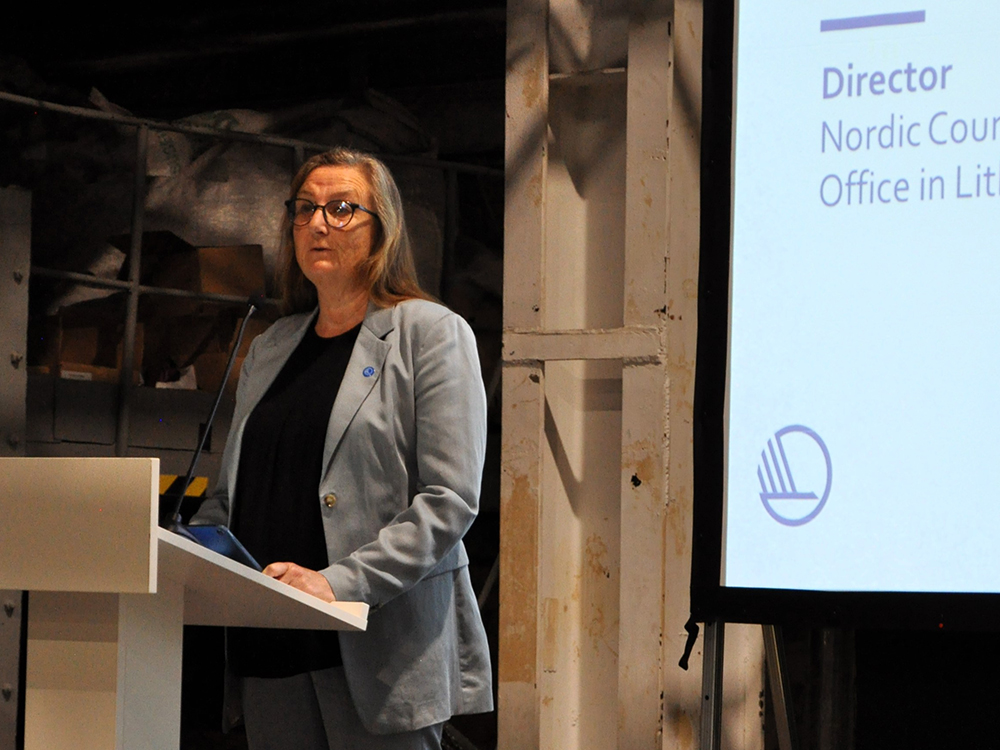
Helén Nilsson, Director of Nordic Council of Ministers Office in Lithuania.
Accomplishments and results
The keynote speeches were followed by the conference’s first session, where three Baltic-Nordic projects with funding from the Joint Baltic-Nordic Energy Research Programme presented their findings and achievements. The session was opened by Ansis Avotins, Docent of Riga Technical University, who provided guidelines for next generation buildings based on the project Next-uGrid. Avotins presented the project’s observations of the new challenges to the electrical grid management that come with the integration of renewable energy sources, such as cyber security aspects on different powerplants and buildings.
In addition to Next-uGrid, the NUANCE project’s results were presented by Andra Blumberga, Professor at Riga Technical University. Aiming to identify the role of hard-to-reach energy user groups in reaching climate targets in the Baltic-Nordic region, the project uncovered methods on how to reach the hard-to-reach users, such as increasing external pressure at elements like energy prices or taxes.
Suggesting progressively that “it is impossible to stop innovations in district heating”, Dagnija Blumberga concluded the session by presenting the WasteHeatSES project’s assessment of waste heat potentials in smart energy systems. Blumberga explained how their project has allowed the researchers to tell that it’s possible to capitalise on district heating systems instead of using natural gas. In today’s geopolitical climate, the transition from natural gas is not only a question of climate neutrality, but also of security since the energy source previously came from Russia to the Baltics.
The Baltic Sea energy grid
The second session focused on the Baltic Sea energy grid and how the system operators and researchers can cooperate to develop technologies to reach our energy goals. With a panel discussion moderated by Rasmus Wendt, Board Member of Nordic Energy Research, the panel included Audrius Baranauskas, Head of Innovation at Litgrid, Jussi Närhi, Energy Expert at the European Network of Transmission System Operators (ETSO-E), and Saulius Gudžius, Professor at Kaunas University of Technology. For the future of Baltic-Nordic energy grid, key topics included long term development of the grid, Baltic Sea energy hubs, and synchronisation of the Baltic electricity transmission systemwith the Synchronous grid of Continental Europe starting from February 2025.
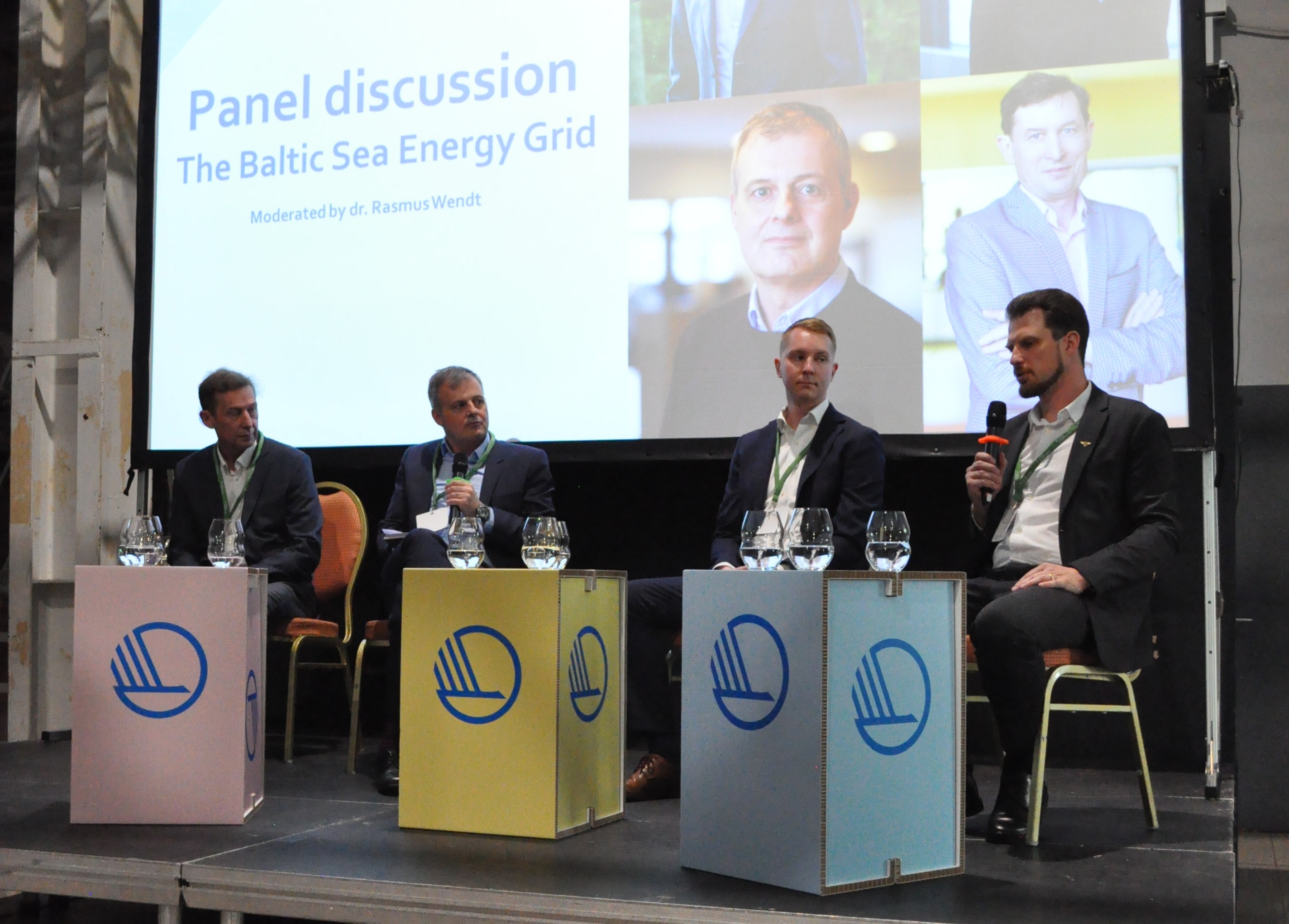
From left: Saulius Gudžius, Professor at Kaunas University of Technology, Rasmus Wendt, Board Member of Nordic Energy Research, Jussi Närhi, Energy Expert at European Network of Transmission System Operators (ETSO-E), and Audrius Baranauskas, Head of Innovation at Litgrid.
Receiving questions both from Wendt on stage and from the audience, the panelists agreed on the need for increased focus on how we can better utilise collaboration between researchers and TSOs. For instance, Gudžius emphasised the need to show the natural consumer how it’s profitable to make use of the flexibility: “The goal is to make our energy systems more secure and reliable, in cooperation with government and academia to make it equitable and profitable for both producers and consumers.” With the electricity demands rapidly increasing, developing innovative solutions like battery energy storage systems and synchronous condensers can contribute to driving forward the progress of renewable energy sources.
Long term impacts and perspectives from the funding parties
Entering its third and final session, the conference shifted its focus towards outcomes from previously funded projects, with Raimo Simson, Senior Researcher at Tallinn University of Technology, as well as Vidas Lekavičius and Lina Murauskaite from the Lithuanian Energy Institute, showcasing long-term impacts from the projects NB-NZEB, IntSuf, and Agent-GIS-5GDHC respectively.
Thereafter, the forum closed with a second panel discussion on the way forward from the funding parties’ perspective. Looking back at what aims have been met in the Joint Baltic-Nordic Energy Research Programme, as well as looking forward to future funding initiatives towards 2030, Daumantas Kerežis, Adviser at the Ministry of Energy of the Republic of Lithuania, praised the collaborative efforts with and support from Nordic Energy Research: “The togetherness and ability to form alliances of researchers is a big advantage for our region. Now we have financial planning for the years to come, with Nordic Energy Research also helping us administratively.”
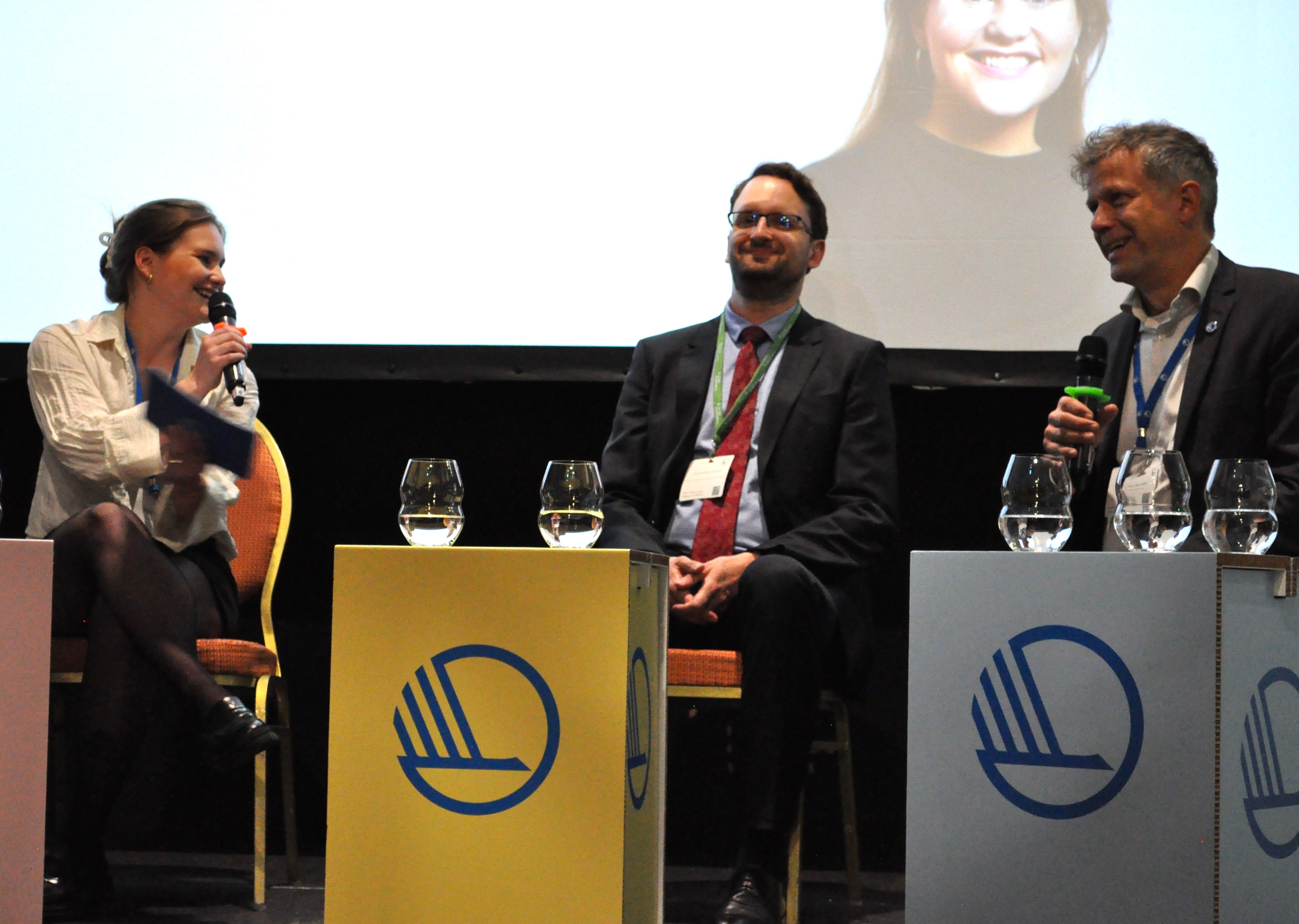
From left: Ragnhild Leganger, Higher Executive Officer at Nordic Energy Research, Daumantas Kerežis, Adviser at Ministry of Energy, Republic of Lithuania and board member of the Joint Baltic-Nordic Energy Research Programme, and Klaus Skytte, CEO of Nordic Energy Research, and board member of the Joint Baltic-Nordic Energy Research Programme.
Although being two different institutions, Klaus Skytte also valued the similarities Nordic Energy Research can find with the Ministry of Energy, as they share the goal of finding a common value in the collaboration. With the Nordic region being the 11th largest economy in the world, Skytte touched upon the purpose of creating critical research masses, where the high scientifical level sustains a great quality of the projects.
Nordic Energy Research would like to thank everyone for contributing to making the Baltic-Nordic Energy Research Conference such a constructive and engaging conference!

